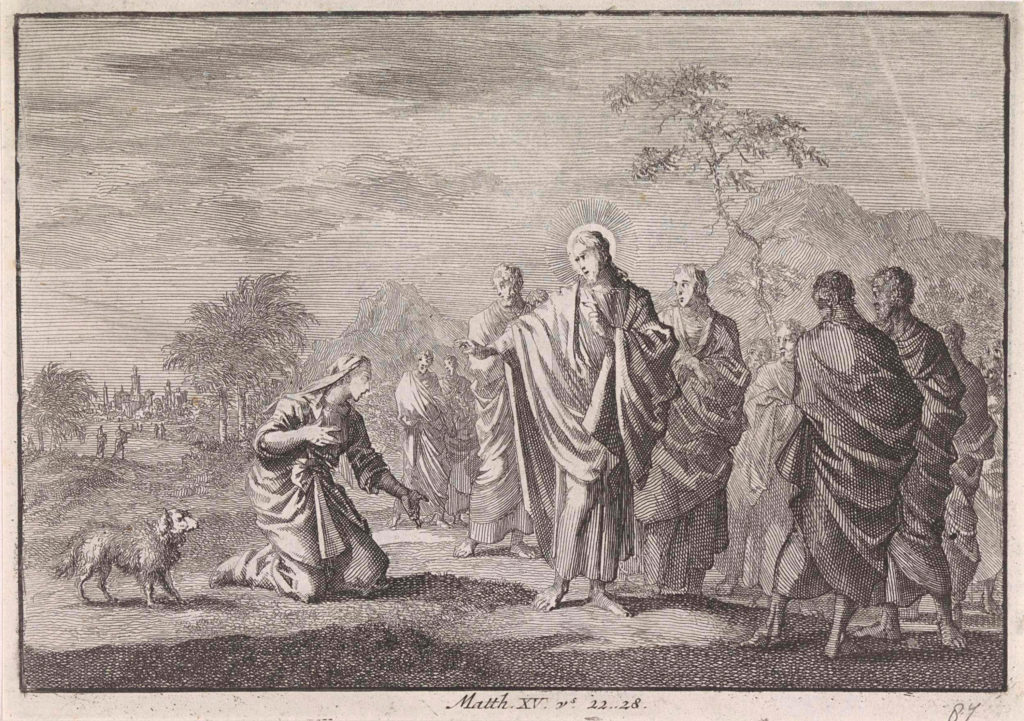THE LAST WORD • SYROPHOENICIAN

A Woman Of Faith (Mk 7: 24–30)
BY Fr Silvano Fausti SJ | Biblist and writer
“IT IS not good to take the bread of the children and throw it to the little dogs”, says Jesus, testing the woman’s faith; but she replies that it is good for the little dogs to take at least the crumbs of their children’s bread.
Her attitude releases the power of the Lord who says to her: “By this word, go: the devil has gone out of your daughter”. The woman’s reply is an expression of humility and trust, who, without becoming discouraged, recognises her own misery and the mercy of the Father.
The present story is all about the bread of the children. Wasted by the children, it is picked up by the dogs. Indeed, it tells the reason why salvation passes from Israel, the people of the children, to the pagans (Acts 13: 46), called ‘dogs’. No one can save oneself by one’s human or religious power. Salvation is love; but no one can love oneself. It is always the grace of the other.
The bread (= life) of the Son is the free love of the Father. Those who, like Israel, whether old or new, think that they are entitled to it by right or by duty, will never encounter it. The pagan, on the other hand, who considers himself excluded, is able to understand that it is a gift.
The bread of the children is the Son who gives us His life. If the disciples mistake Him for a ghost, this woman knows that a few crumbs are enough to save her daughter.
It is interesting to note that the exorcism is carried out in the absence of Jesus. It reflects the situation of the Church after Easter, in which His presence is now recognised by faith in the bread.
The previous passage shows the hardness of heart of those who, with the law, keep the bread bound (Mk 7: 14–23). This one shows its power, liberated by faith in it. It is there, among the pagans, and lacking among His own. They have turned the Eucharist into a habit and into indifference, or even into a privilege that feeds their pride. We, the hard-hearted, will be converted when we accept the bread of the children as unworthy sinners, and share it with all our brothers and sisters, without discrimination.
The pagan woman, the only one so far to eat it, manages to arouse the jealousy of the children, so that they may appreciate the gift that was offered to them first (Rom 11: 11).
Jesus is called Lord for the first and only time (Mk 5: 19 and 11: 3 where He calls Himself that). It will also be another pagan who proclaims Him as Son of God (Mk 15: 39). Not recognised by His own, He is only recognised by those far away, who do not claim rights. In fact, it is through love, and as such, free and without conditions. Whoever thinks he deserves it, cannot receive it. What is deserved is neither unconditional, nor free, nor love.
A disciple is he who, Jew or not, expresses the word of faith in this bread of the children, given not by merit, but by the pure grace of Christ. Faith is nothing other than the passage, in our relationship with the Lord, from the economy of salary to that of gift.
